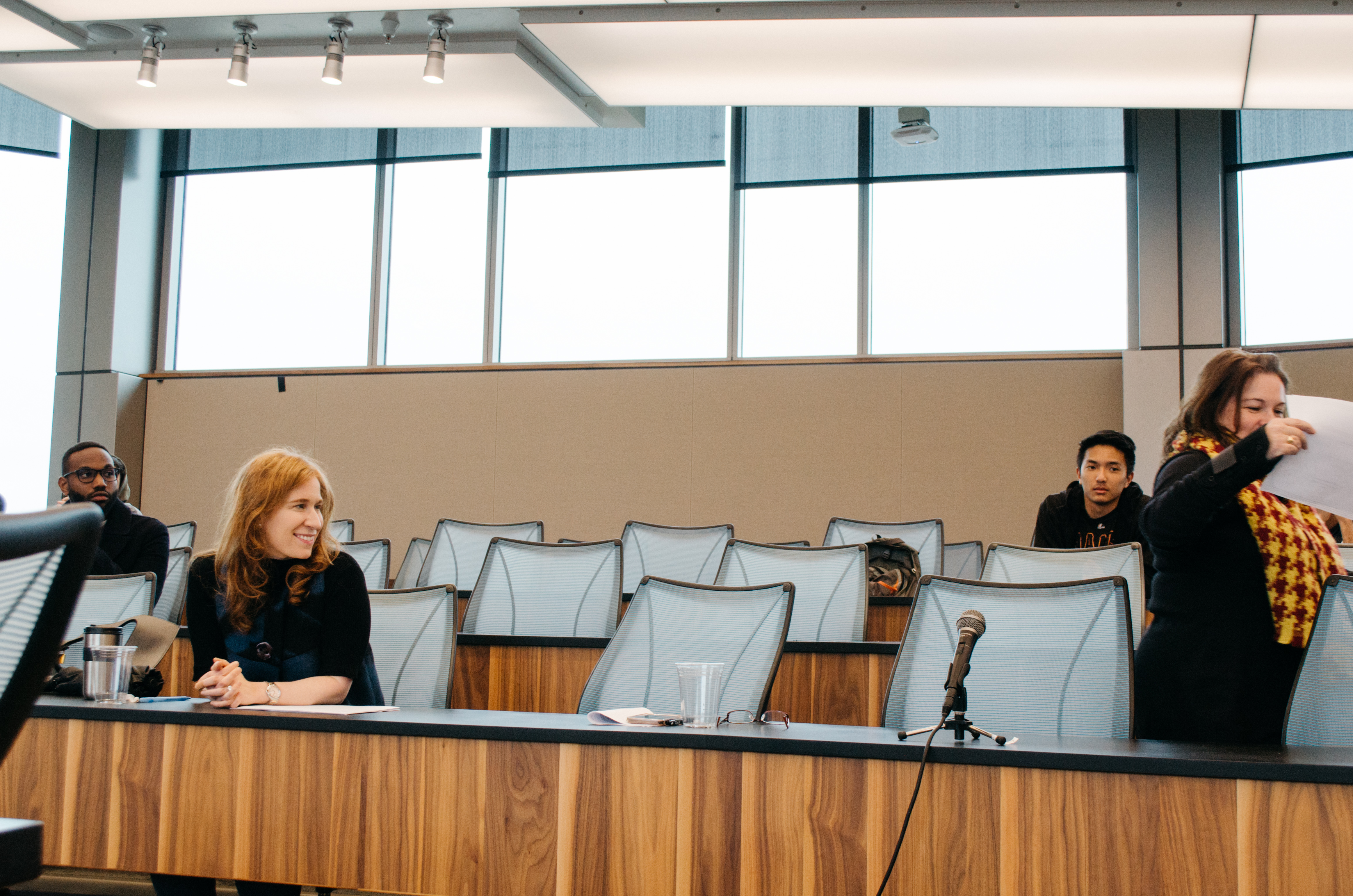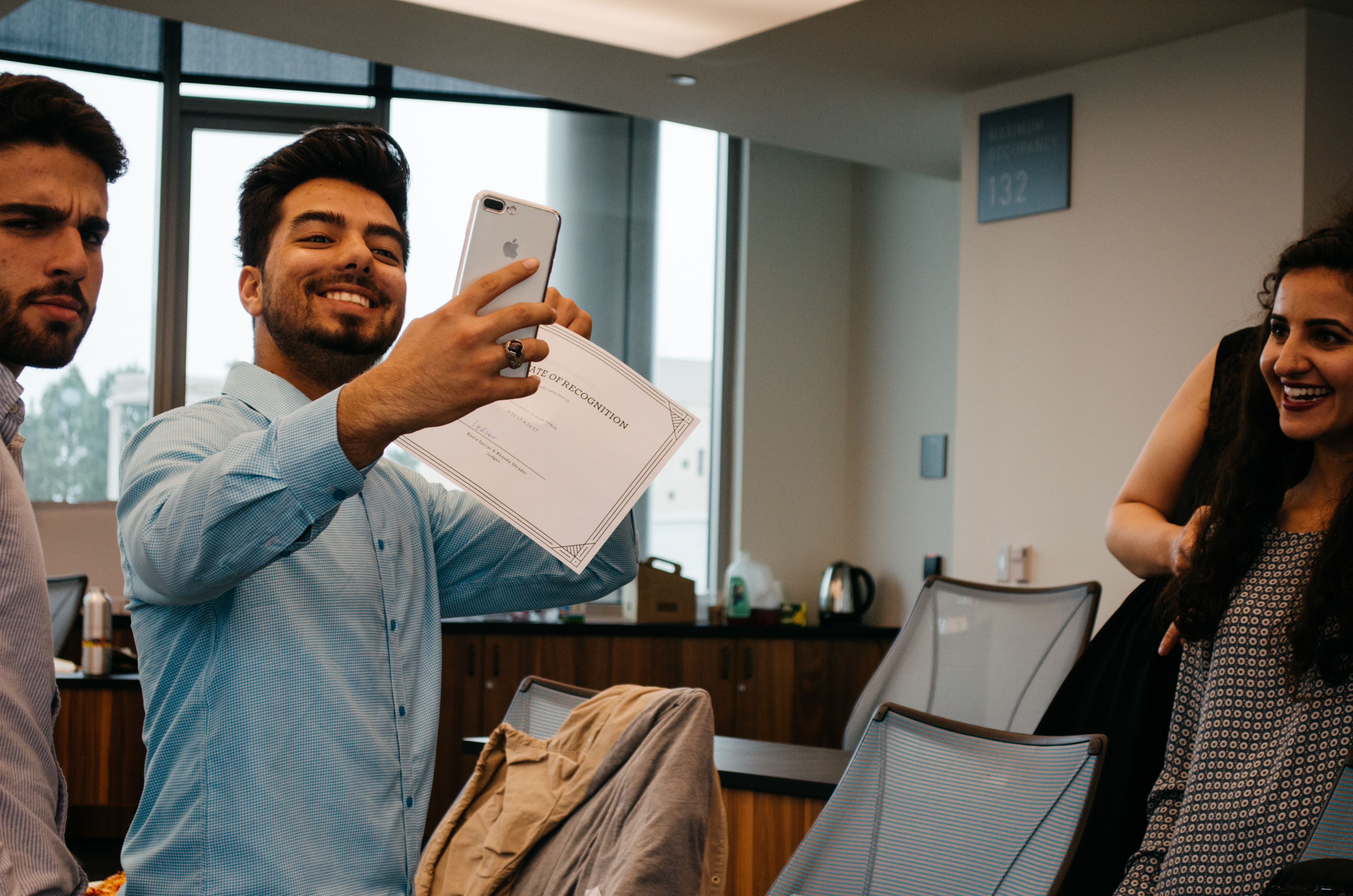Overview
hack.SYRIA is the first hackathon put on by the AMENA Center for Entrepreneurship and Innovation. On April 15th and 16th, the center organized 36-hour hackathon that brought together talented undergraduate and graduate students from UC Berkeley to create useful tools for Syrian refugees with a focus on education, mental health, and economic security.
The projects were judged by Rania Succar, co-founder of Jusoor Syria, and Rhonda Shrader, Executive director of the Berkeley-Haas Entrprenuership program.
Project Spotlight

Izdihar
first place [$500 Cash prize]
Arian Akbar [Political Science, ‘18]
Neeka Mashouf [MSE, Business Administration, ’18]
Azin Mirzaagha [Cognitive Science, ‘19]
Saunon Malekshahi [Mechanical Engineering, ‘19]
Mostafa Rohaninejad [EECS ‘19]
Neeka Mahdavi [Economics, ‘17]
Nardeen Dawood [Public Health ‘17]
The Izdihar team discovered that the most prevalent and most significant clinical problems among Syrians are emotional disorders, such as: depression, prolonged grief disorder, posttraumatic stress disorder and various forms of anxiety disorders. Lack of appropriate treatment and continuing high levels of stress worsen their situation and effect the ability to work, care for children, and pursue education. Medical care for those with mental disorders remains out of reach for most.
Thus, there is a critical need for “community-based” mental health care. Izdihar created a platform that allows for a virtual space to address the metal health crisis taking into consideration cultural barriers and accessibility. They recognized that many doctors with connections to the region are eager to help, but cannot dedicate much time on the ground in the region. Further, mental health problems require stability and consistency in order to be effective. Citing research from the American Psychiatric Association on the efficacy of live video therapy they built their platform with a focus on accessibility, cultural competence, and pragmatism.


LOOK MA
second place [$200 Cash prize]
Abdulrahman Alzenki [Computer Science & Near Eastern Studies, ‘17]
Jeffrey Liu [Computer Science & Economics, ’18]
Hattem Alhuwaimel [Materials Science and Engineering, ‘19]
The Look MA team made a familiar concept more accessible. They created a platform that centralizes home cooked meals for sale. Two of the team members are natives to the middle East and they knew how home cooked food for sale is popular for the growing middle class. Yet, the way word spreads about this food now, is through large WhatsApp groups, making it hard to track sales and expand the market. Further, many Syrian migrants throughout of the middle east and Europe have turned to selling their authentic home cooked food as a way to acquire local currency. Their app/website provides an easy to use interface to list foods for public viewing, they use a Facebook verification system to minimize fraud and Facebook messenger API to streamline communication. The team hopes to roll their app out across the Middle East and into Europe. Further, they believe that their platform can facilitate a form of food diplomacy especially within areas that have high anti-migrant sentiments.


Madrasa
honorable mention
Liz Lee [Information Management and Systems, ‘18]
Megha Majumder [Public Healthm Toxicology, & Sociology, ’18]
Joshua Price [Mechanical Engineering & Biochemistry, ‘18]
The Madrasa team believed that one of the most potent ways to address the current migration crisis is through education. They created an education resource platform to empower both adults and children settling in Middle Eastern Countries. Citing research from the Human Rights Watch and UNHCR they understood the massive Crisis facing Syrian youth with regards to education, “out of the 1.5 million Syrian children living in Turkey, Lebanon, and Jordan, approximately half doesn’t have aces to formal education.” Their research also pointed out the high economic costs of school, dropout rates, and quality of education. They believe that the lack of education and resources is putting Syrian children’s futures at risk therefore putting the future of the country at risk as well. In the end, they created a platform that Empowers adults with resources and has the ability to educate children when pre-existing systems fail. They do this through a Web and mobile based application that provides teaching resources and support to adults without necessary academic degrees.


Kindred.
honorable mention
Omar Mohamed [Political Economy, ’18]
Fatima Ibrahim-Biangoro [Computer Science, ’18]
Ghaida El-Saied [Mechanical Engineering & Computer Science, ’18]
Menat El Attma [Public Health, ’20]
Mohamed El Attma [EECS, ’21]
Zaina Abubeker [Economics, ’17]
The Kindred team believes that the integration process needed centralization and a platform for facilitation. The purpose of the kindred. project is to simplify the integration and assimilation process for refugees by connecting them with each other and nearby natives through a centralizing platform. Their platform took into consideration a lot the access barrier that migrants face and built for that, making a texting feature for those without a data plan, minimizing information shared to quell fears of tracking, and utilizing a rating system to help shed light on shady organizations. The platform would be available via text, web, or mobile app.
hack.SYRIA Sponsors





